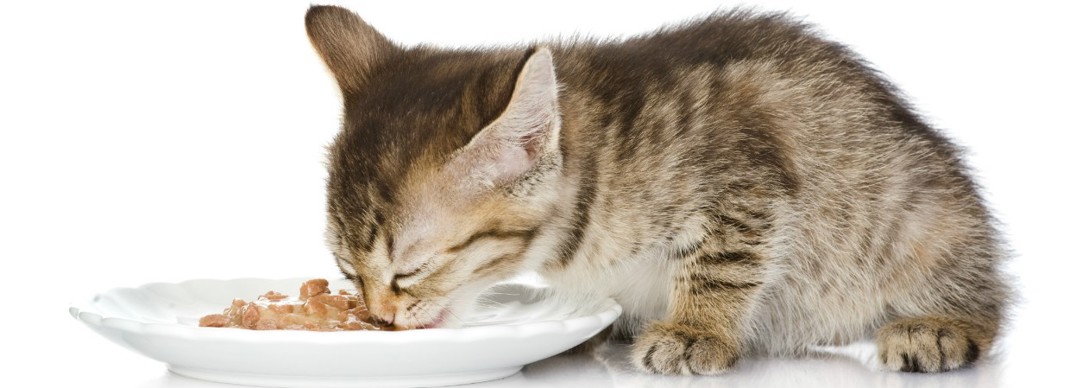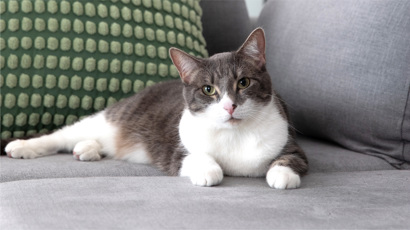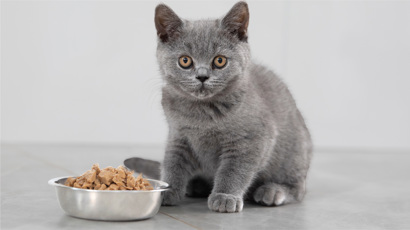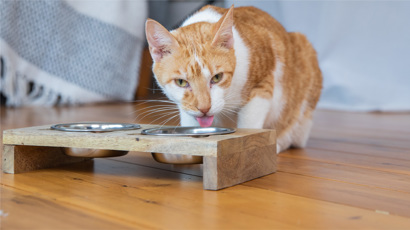What to feed your kitten?

Choosing the right food for your kitten is not always a straight-forward decision. And it’s an important one, particularly when their young bodies are developing into the great, bounding pets they’re about to become.
Kittens should have up to four meals a day until 12 weeks, and most young kittens will still be used to eating a semi-solid or 'wet' diet when you first bring them home.
Be sure to ask what they’ve been fed previously, confirm whether this includes kitten milk, mousse formats, puches, canned food etc and try not to make drastic changes quickly, as these will upset their sensitive internal systems.
If you’re feeding wet kitten food, be sure to put out new food for each meal, rather than letting it sit out and exposed. This ensures it remains tasty, avoids spoilage and that insects or rodents can’t get access to it. It’s always a good idea to feed wet foods which have been brought to room temperature. Refrigerated as well as excessively heated foods will lost their appeal, and potentially their nutritional value.
If you’d prefer to feed dry food (kibble), that’s okay! Dry kitten food has the advantage of easier storage and can be left out a little longer. Some allow their kittens to graze on kibbles throughout the day but be sure that this doesn’t lead to overeating in a kitten or cat that really likes their food.
Some young kittens will struggle to ‘crunch’ the hard kibbles to start with, even though they are smaller than adult kibbles. Don’t be too concerned, they will learn as their adult teeth grow through. In the meantime, you can soak their kibble in hot water 10-20 minutes before mealtime, to allow them to soften into a slurry (just be sure it’s adequately cool before feeding!). As your kitten adapts and grows older, add less water.
Remember that you should always be aiming for a 100% complete and balanced diet.
While treats and rewards are great for training and additional extras, premium, natural kitten food like Black Hawk Original Kitten formula is specifically formulated for fast-growing, active kittens. Its high-quality ingredients provide all of the nutrients they need for the best start in life.
Water is very important, and a fresh bowl should always be available. In fact, two bowls per cat is an ideal situation, giving them lots of options and allowing them to choose their favourite drinking station. Your feline friend will also likely seek out water in weird and wonderful places: in the shower, watering cans, pot plant saucers, fountains... cats and kittens generally prefer fresh and moving water sources.
Many kittens love milk, but it can cause an upset tummy, particularly if it’s not specifically formulated cat milk. Cows or goats milk isn’t a great idea as kittens actually become lactose intolerant at the time of weaning. Specially formulated kitten milk is an option as the lactose content is altered, so it shouldn’t upset your kitten’s digestive system.
Your kitten can transition to adult food at about 12 months.
Introduce new foods over a week or so, and there should be no problems. Start with a quarter new food, mixed with three-quarters old, and gradually increase until it’s all new food - more information on how to do this here.


